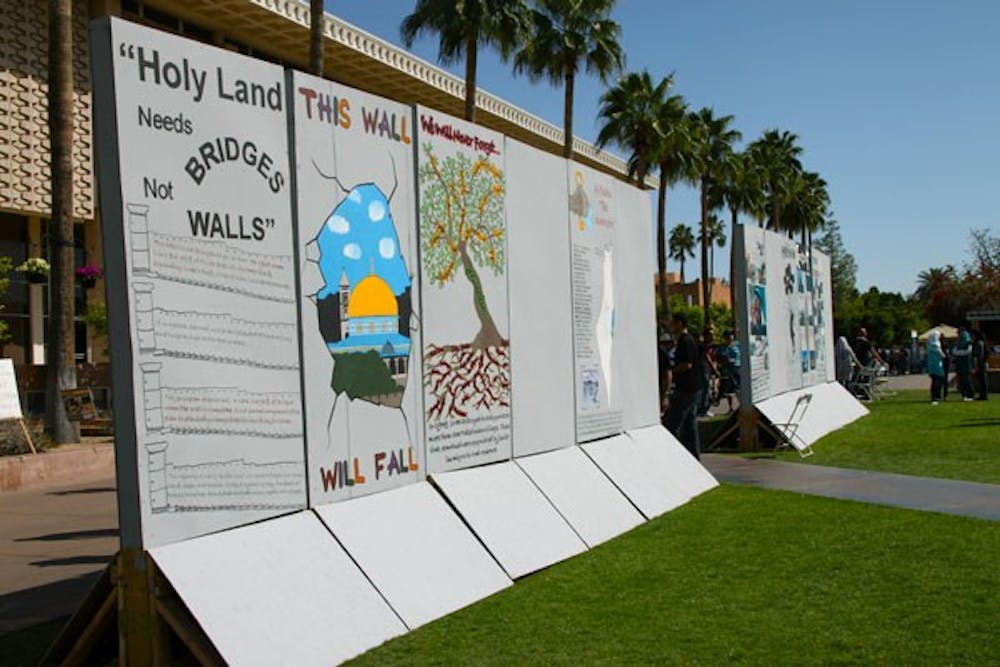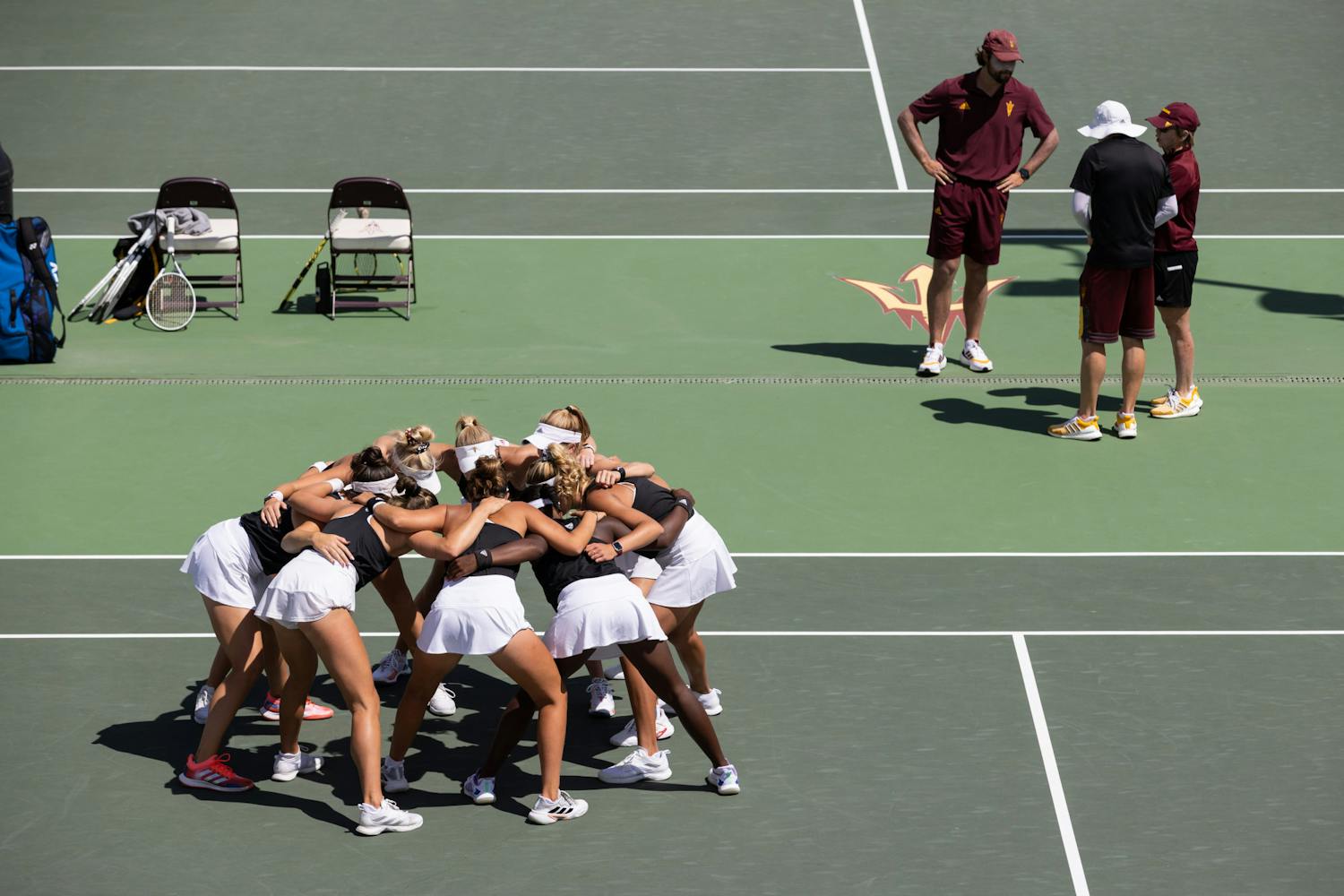 Students for Justice in Palestine built a mock barrier similar to the
Students for Justice in Palestine built a mock barrier similar to theone placed by a pro-Israel group for the Apartheid Week in March 2011. (Photo by Rosie Gochnour)
Students for Justice in Palestine is preparing to set up its “Apartheid Wall,” a visual that prompts debate among groups on both sides of the conflict.
SJP president Aman Aberra, a biomedical engineering sophomore, said SJP is open to holding conversations with campus pro-Israel groups.
The organization has proposed a debate with Israeli groups in the past, but never received a definite response.
“We try to talk to the groups that protest (at the Apartheid Wall),” he said. “We have good conversations with them (and) they are nice people.”
SJP does not disclose the exact date that they will be setting up the wall to limit the amount of counter-protests.
Understanding their opinions is important, Aberra said.
“You can’t reject somebody else if you don’t hear them,” he said. “It is the only way to humanize these issues.”
The mock wall, which represents the barrier between Palestinian territories and the country of Israel, is covered with data and photos to inform students about the conflict.
“We just want people to know what’s going on,” Aberra said. “At the end of the day, it’s a case of occupier and occupied.”
SJP focuses on educational events to change public policy, Aberra said.
“Either people don’t know about the conflict or have very skewed opinions,” Aberra said. “Right now, the status quo is to agree with pro-Israel groups.”
Political science and economics senior Boaz Witbeck, founder of the American-Israeli Alliance, disagrees.
“Most people don’t have a strong opinion on the issue,” he said. “But maybe, the general consensus at a college would be to side with pro-Palestine groups.”
The ASU community benefits from having groups that disagree on the issue, Witbeck said.
“It’s important to consider both sides and it’s healthy to examine things closely and (to) think for yourself,” he said.
AIA is not an anti-Palestine organization, Witbeck said.
The mock wall lacks context and does not have all the facts, he said.
“(The wall) is filled with speech against Israel and misinformation,” he said. “It’s not pro-Palestine, it is anti-Israel.”
Peace should be the focus and it has been an underlying theme among Israelis, Witbeck said.
“Palestinians and Israelis can coexist,” he said. “This is what we should all work for.”
Third year law student Shifa Alkhatib, a spokeswoman for SJP, said the wall does not seek to antagonize pro-Israel groups.
“We are not trying to fight with the other side,” she said. “Our main goal is to give people the truth.”
People with conflicting views are welcome to discuss the issue with SJP volunteers at the wall.
“As long as they don’t come with a closed mind, we are happy to talk to them,” she said. “It’s important to hear both sides of the story, but what we have on our side is the facts.”
Political science senior Bridget Pikosz, the president of AIA, said peace could be achieved.
“Palestinians and Israelis can live together and still have different beliefs,” she said. “It’s not about religion; it’s about being a sovereign country.”
Reach the reporter at dpbaltaz@asu.edu




